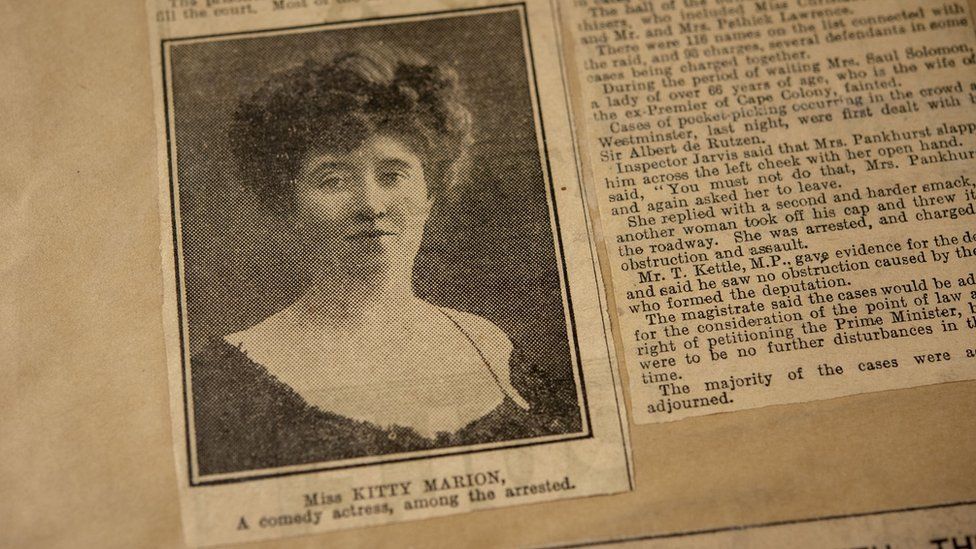Kitty Marion: The actress who became a 'terrorist'

When a student researching in the archives of a London museum read the unpublished memoirs of a suffragette bomber, she began to wonder if the history of the movement had been sanitised. The suffragettes may have won the vote for women, but some of them, she argues, were terrorists.
Fern Riddell recognised the bomb straight away.
On the morning of 15 September 2017 an explosion on a rush-hour train at Parsons Green underground station in west London had resulted in dozens of injuries.
It was the fifth act of terror in the capital in less than a year, and Riddell was anxious for more information. Combing through social media looking for real-time updates, she came across the image of a burning white plastic bucket.
The crude bomb that had detonated in the packed train carriage had been wrapped in a plastic grocery bag and concealed inside that bucket.
To Riddell, the image had a powerful resonance.
"That," she thought, "is a suffragette bomb. Home-made and with materials you could buy in chemist's and hardware stores. That is the kind of bomb the women used to terrorise the country into paying attention."

Riddell's interest in the suffragettes had begun five years earlier while she was studying for a PhD in history, though her first instinct had been to have nothing to do with them.
"It felt like a trap. That to be a young female historian, I had to write about women, about suffrage," she says.
She was far more interested in Victorian music halls. They featured skits and novelty acts, and, frequented by all classes, were a democratic and affordable form of entertainment.
"They were the internet of their day," says Riddell. "Just like memes appear on social media today, a song would be written and performed in music halls on the day of a significant cultural event. It was a raw, electric and relevant world that told of a society that differed from the restrained images often painted by historians of the 19th and early 20th Centuries. Especially when it came to women. It captivated me and I was excited to learn more."
But a chance discovery in the archives of the Museum of London, made with the help of archivist Beverley Cook, led to a dramatic change of direction.
"Bev said to me, 'I've got this unpublished autobiography of a young music hall artist, very few people have ever really looked at it. She was also a suffragette. I don't know if you're interested?'
"And I kind of rolled my eyes and thought, 'Oh God not a suffragette,'" Riddell says.
"At that time I had a certain impression of suffragettes that many people did. I knew about the window-smashing, being chained to rails, the force-feeding, the posters and marching. I thought I knew everything there was to know about these women."
No comments:
Post a Comment